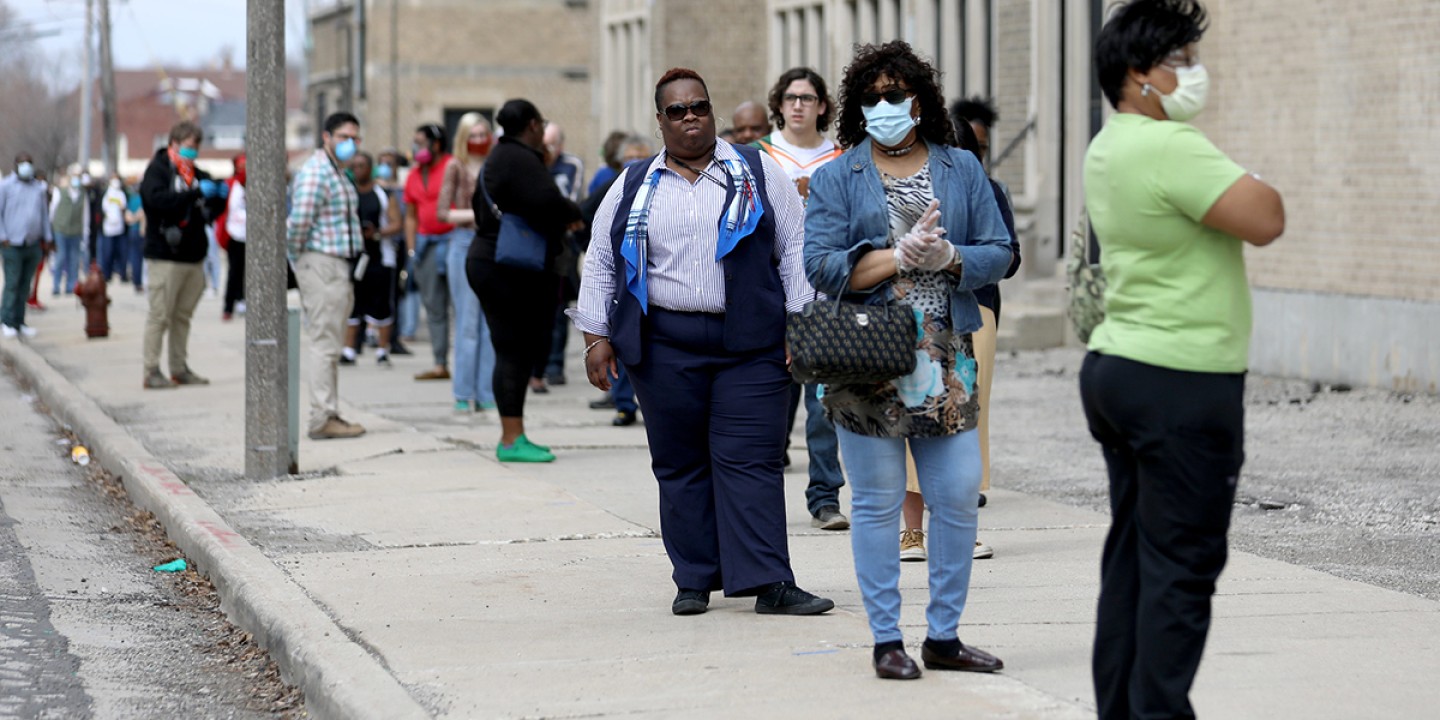Wisconsin’s voting problems began long before the pandemic
Those in power have been working for years to prevent votes from counting.

Wisconsin’s disastrous attempt to hold an election last month during the COVID-19 pandemic offered a disturbing portrait of the state of American democracy. Only five of the usual 180 polling sites in Milwaukee were open. Despite stay-at-home orders, voters waited hours in line to vote—with little social distancing. Thousands of voters who requested absentee ballots never received them. Anyone hoping for a free, fair, and safe election in Wisconsin was treated to the troubling spectacle of voters risking their lives to vote. “This is so wrong,” a voter told NBC News. “Stop playing politics with our lives.”
Many commentators have observed that if the United States attempts to hold the fall election during a protracted pandemic, Wisconsin’s experience might be a harbinger of what happens nationally. But the problem demonstrated in Wisconsin goes far deeper than the pandemic.
Read our latest issue or browse back issues.
The fundamental problem is a lack of consensus that all adult citizens should be able to vote and have their votes counted equally. If Americans were to agree on this basic right of democracy—and history does not suggest that this agreement would come easily—then solutions to the technical problems involved would follow.
No consensus exists even on appropriate remedies for egregious abuse of voters’ rights. Wisconsin has been a center of such abuse for a decade. In 2011 the Republican majority in the statehouse undertook an aggressive gerrymandering effort, followed by a carefully plotted voter suppression effort. Both paid dividends. A 2017 study by the University of Wisconsin found that 17,000 registered voters were actively prohibited from casting their votes in 2016. In 2018, Democratic candidates received 190,000 more votes than Republican candidates—yet the statehouse maintained a 64–35 Republican advantage.
The particularities of the multilayered disaster that was Wisconsin’s election last month—from the question of whether to postpone the election to the last-minute US Supreme Court decision about the counting of absentee ballots—are less important than the message to voters nationwide: we would rather protect those in power than protect your right to vote. This is not new in American politics. Wisconsin has merely offered the most extreme example since the civil rights era.
This is often cast as a partisan issue: Democrats want more voters; Republicans want fewer. It ought to be understood as a question about the nature and future of democracy itself. Once we have agreed that all adult citizens should be able to vote, vote easily, and have their votes counted equally, there are many steps to take to improve the process, from mail-in ballots to increased security for voting systems to bipartisan redistricting commissions that prevent gerrymandering (by whatever party).
We won’t solve any of these technical questions, however, until we resolve this fundamental disagreement about whose vote should count.
A version of this article appears in the print edition under the title “Not every vote counts.”





